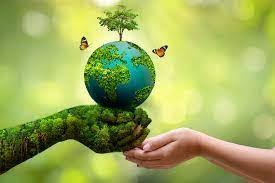"You cannot get out of the Environment—you are in it."
~Barry Commoner~
The environment is one of the broad aspects of human endeavor that cannot be avoided as long as we exist on this planet, Earth. There is a need to preserve all that it offers. It is important not only for us living in it right now but so that the coming generation can have a place to exist in the coming years and decades.
Sustainability Concerns
The question now is whether what we do to sustain the environment is actually doing that or causing more harm. For example, biofuels are considered renewable energy, but large-scale production can cause deforestation, which in turn still affects the ecosystem.
Individual Freedom vs. Collective Effort
Individuals have the freedom to decide on the environmental activities to engage in, but there is also a need for collective effort to sustain the ecosystem. The conflict arises when individuals are restricted from carrying out their activities, such as the use of water, means of transportation, land usage, etc. For example, individuals have the right to choose their means of transportation, and most people decide to use their cars, which causes air pollution. It would be unfair to impose restrictions on that.
Global Impact: Our Responsibility
These climate burdens and challenges affect the entire planet and not just a particular community or generation. The question then arises: who has the responsibility of curbing these issues? Is it the developed countries or the underdeveloped/developing countries, which mostly suffer from the consequences of these actions without having the capacity to control them? Should we leave it to the coming generations to take care of where we live?
Sustainable Solutions
To curb these issues, there is a need to increase the use of sustainable solutions, which are already in motion, especially in this century compared to the last, where there is more awareness regarding this topic. Solutions such as renewable energy (e.g., biofuels), eco-friendly technologies like solar-powered solutions, etc., should be balanced to avoid negative impacts on the environment.
How do we achieve this?
Government and policies
This is where the government steps in. There is a need for proper study and analysis to curb unsustainable practices. It is not only about going for sustainable solutions but also implementing them in a sustainable way. Through these studies, policies and frameworks that support such solutions can be developed. Since climate change is global and not confined to a particular region, there is a need for collective effort from both continental and intercontinental corporations to address the issue.Individual Responsibility
I believe that as much as individuals have the freedom, it is their decisions, when brought together, that will lead to a collective effort in sustaining the planet. This can be achieved through awareness and education on the subject matter.
Conclusion
The environment remains one of the greatest gifts to humanity, and it is the responsibility of each and every one of us to make room and adjustments on individual, collective, and global levels. From our daily activities to major actions, we must consider sustainable solutions in sustainable ways. I cannot just decide to cut down all the trees in the forest because I want to create a sustainable solution without planting another to ensure the system continues for future generations. It is both a selfless and selfish effort, for us and for others.
It's time to do something
What are those activities you still carry on that you know there are better (sustainable) solutions for? Consider them today for the sake of the climate, the environment, and future generations to have a place to live.
Thank you for reading through!
